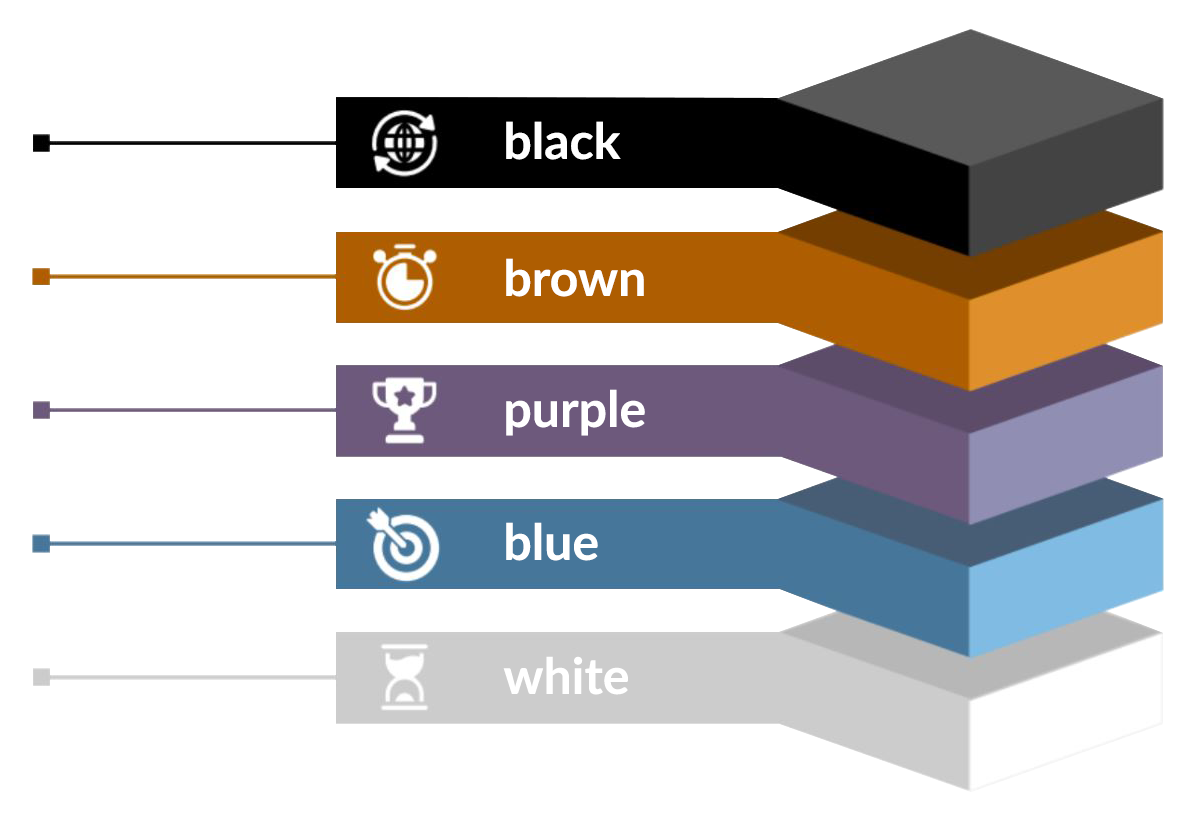Assessment

As a comprehensive school, the X-School in NRW (Germany) will make all qualifications possible - from the first school-leaving certificate after the 9th grade, to the extended first school-leaving certificate and the intermediate school-leaving certificate (‘Fachoberschulreife’) after the 10th grade, to the highest school degree the Abitur.

Professional assessment
At X-School, the emphasis is on learning, not grading. The real goal of assessment is to improve student performance, not to test it.
Each student at X-School is assigned a coach. With their help, students receive a systematic, differentiated profile analysis at the beginning of each quarter based on a line of inquiry: How is their academic performance? Where does the student stand in terms of future competencies? What strengths are emerging? What do they want to work on? Based on this, they set holistic personal goals and decide on their milestones along the way (OKRs). In the course of the learning unit, there are firmly scheduled weekly meetings in which the reflection of the previous week and the planning of the next week are systematically discussed. It is about successes/failures, learning methods and management, motivation and well-being in an ‘anticipation - action - reflection’ cycle (AAR).
The core of this routine is that the evaluation of the sprints is not aimed at a final assessment of performance, but spirals to continually provide new impulses for learning optimization.
The students are involved in the process, so they learn to reflect on themselves and to relate the perception of their performance to the image others have of them. At the same time, they practice self-reflecting on their learning process: Which learning method suits them best? What did they struggle with? How was their time management? A student’s entails not just completing the tasks set by teachers and textbooks, but to actively manage and understand their learning progress. This results in stronger metacognition and self-direction. [2]
What were class tests in the past are individual performance records in X-School. The performance records are the end result of the many small sprints and assessments.
360° assessment
Target:
Each student receives comprehensive feedback from all stakeholders in order to grow and learn.
Timeframe:
Mandatory for all students after each project unit (3x/year).
Procedure:
All students prepare for the 360°s by completing their portfolio regarding the last project unit and creating a presentation about what they learned and successes/challenges.
Students choose two peers, joined by:
grade level teachers,
their mentors,
their coach, if applicable,
social worker,
special education teacher,
their parents
Teachers coordinate all students in a schedule.
Part 1 - Presentation 20 minutes
Part 2 - Participants provide at least three positive feedbacks and two different aspects of constructive growth-oriented feedback.
After the 360°s, the student will decide on new goals for the year and change mentors if necessary.
Personal assessment

The graduations from white, to blue, to purple, to brown, to black are not based on professional achievement, but on personal development.
The graduation itself consists of an initiation ritual. In ancient cultures, such rituals as markers from one stage of life to the next are an important means of marking personal growth and strengthening the community. In X-School's rites of passage, each student faces an individually tailored challenge that takes them out of their comfort zone. This is discussed and set up among the student, guidance counselor and family. For one student, this may mean confronting the roots of his anger; for another, it may mean having a frank conversation with his mother. These rites of passage can be very emotional for those involved, but each student moves on to the next stage safely and maturely.
In it, the student faces a personal challenge that has grown out of the experiences of coaching in that particular year.
With each graduation level, the student's role in the school system also adjusts:
In the ‘White’ stage, teachers guide the child so that he or she can acclimate to the school culture. The school provides extensive guidance at the beginning but removes it when it is no longer needed. With each graduation level, students earn more freedom, participation, and self-determination. At the same time, their role within the school structure grows with each graduation. They assist in the organization, design lessons, choose projects, design spaces, and resolve conflicts. In this way, the school years are passed through as a process towards more independence, in which more and more is controlled by the learners themselves.

